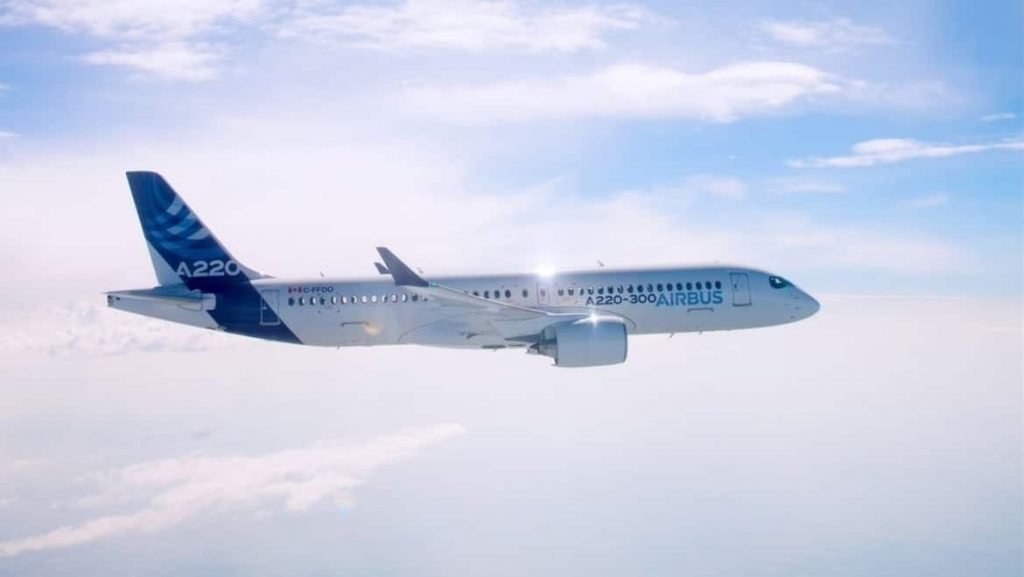
European planemaker Airbus has been forced to prepare for a ‘no-deal’ exit of Britain for the European Union, and has pleaded for an end to diplomatic squabbles and trans-Atlantic aircraft subsidy disputes.
Airbus chief executive Guillaume Faury said the plane manufacturer, whose business straddles across both the UK and EU, was preparing itself for severe disruption if Britain completes its exit from the Union without a deal.
“It would really be a pity that after so many years of preparation there is no deal at the end. I think it would be much better for the EU and the UK to have an orderly Brexit,” Faury said at a virtual conference.
“This being said, if there is no deal we will have to live with it. There will be a more difficult transition on 31 December and we are preparing ourselves for some logistical issues, but we don’t think this is going to be unmanageable,” he added.
Faury’s comments come after Britain’s manufacturing industry warned of a potential “knockout blow” should the UK be unable to secure a trade deal with the EU before temporary transition arrangements end of 31 December.
Faury also called for compromise and “de-escalation” in a long-standing dispute over aircraft subsidies, in which both the EU and United States have imposed tariffs on goods.
“We are calling for a de-escalation … and [for] finding a long-term agreement between the U.S. and the EU, and we think this is what will happen,” Faury told the Conference of Montreal.
“And it will happen under the Biden administration, but I think it would have happened anyway.”
Diplomats say the EU and outgoing Trump administration are in “serious” negotiations to end the 16-year-old trade fight, which has come to a head just as Britain leaves the EU.
Airbus found itself dragged in the middle of both major disputes last week when Britain announced it would halt tariffs on US goods as it prepares to exit the EU, in support of Airbus.
Industry sources now say the decision, which contradicts earlier promises that tariffs would continue, ended unity among Airbus, supporters Britain, France, Germany and Spain, and precipitated the word cross-Channel rift over aerospace in decades.
Industry sources said the decision, contradicting earlier signals that tariffs would stay, ended unity among Airbus backers Britain, France, Germany and Spain and precipitated the worst cross-Channel rift over aerospace in decades.
Last month, UK aviation authorities claimed they were working hard to mitigate the potential risks faced by the country’s aviation sector once the current Brexit transition period with the European Union ends on 31 December.
From 1 January 2021, the UK Civil Aviation Authority (CAA) will be required to take on new regulatory responsibilities, as Britain will no longer form as a member of the European air safety regulator, EASA.
“I can reassure you that we are extremely active in doing all that we can to mitigate those risks,” CAA chairman Sir Stephen Hillier said.
“We have recruited the additional people we need.”
The comments come in light of ongoing negotiations between the European Union and the UK as to what the European aerospace environment will look like following the UK’s official exit from the EU.
To date, little has been achieved.
The UK has already made bilateral travel agreements with a number of countries, including Canada, the US, Israel, Norway and Switzerland, and has even acquired traffic rights in a number of agreements to which the EU is not party.
However, a failure to reach an appropriate new agreement, or introduce temporary contingency measures, could wreak havoc on both the UK and EU aviation sectors, growing UK-EU flights, and cause further harm to the already weakened aviation sector in the region, according to Fitch Ratings.
“Airlines with high exposure to or from the UK, such as British Airways (BA) and easyJet, are at higher risk from uncertainties over connectivity arrangements. In 2019, around 50 per cent of BA’s passengers travelled to and from the European economic area,” the Fitch Ratings report said.
“EU-based carriers, especially those low-cost carriers (LCCs) whose operations are largely reliant on intra-European traffic, would also be affected, albeit to a lesser extent.”
Airports across the UK and EU would also take a hit to revenue should no deal be struck between the two parties, though Heathrow has reportedly already taken strides to increase liquidity in the event that such an event should take place.
While the failure to come to an agreement over ongoing aviation operations would have a “significant impact” on both the UK and the EU, Fitch anticipates that some agreement, temporary or long-term, will be made prior to the 31 December deadline.
“We expect the counterparties in Brexit negotiations to secure continuation of basic connectivity followed by a long-term agreement,” it said.
Any temporary agreement is likely not to be struck until the 11th hour, however, and the EU has made it clear that it will not make the process of leaving an easy one for the UK.




